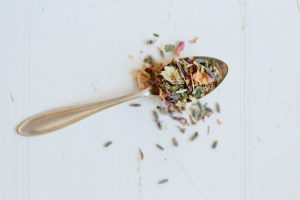The Naturopathic Co.

You're using an outdated browser. Please upgrade your browser to improve your experience.
Nearly all microbes in the human intestine exist within their own biofilm as a functional part of the
microbiome. However, biofilms are also utilised by harmful pathobionts contributing to entrenched
and persistent infections.
Research suggests larger pathogenic biofilms are associated with a wide variety of chronic, or recurring intestinal conditions, suggesting increased microbial virulence and resistance to treatment.
The intestinal tract is lined with a mucosal layer made from polysaccharides, cell fragments and proteins. This biofilm is a substance that cements the microbial communities to the intestinal wall. Under normal circumstances, biofilm populations occur in balanced numbers, however pathobiont biofilms house various unhealthy and pathogenic strains of bacteria.
Pathobiont biofilms form a powerful shield, providing pathogenic microbes with protection from the body’s immune response and from antimicrobial therapy. These pathogenic biofilms use sophisticated communication mechanisms called quorum sensing to evade the body’s defenses, adhere to the intestinal wall, grow and form new colonies.
Pathogenic biofilms are associated with persistent conditions such as inflammatory bowel disease (IBD), irritable bowel syndrome (IBS), and small intestinal bacterial/fungal overgrowth (SIBO/SIFO).
Treatment of pathogenic biofilms can help eradicate the overgrowth of persistent dysbiotic bacteria, aiding the restoration of a well balanced and diverse intestinal flora.
Herbal medicines are gaining research attention due their therapeutic applications in persistent or chronic biofilm infections, where antibiotics have become ineffective. Herbal medicines also come with very few side-effects.
Some herbal medicines that have been shown effective in cutting through biofilm are pomegranite, garlic, cinnamon, phellodendron, oregano, and black cumin.
Anti-microbial herbs should be used as part of a comprehensive treatment plan that incorporates
nutritional support, barrier healing, diet therapy, probiotics and prebiotics.
If you suffer from digestive issues and are ready to start treatment to heal your condition, then schedule a time to see our South Yarra naturopath, Camberwell naturopath, or speak to us online via zoom.
Yvette is a qualified Melbourne-based Naturopath and Nutritionist, MINDD Practitioner, member of the Naturopaths and Herbalists Association of Australia, and Complementary Medicine Association. Yvette specialises in the treatment of digestive complaints, skin issues, mood disorders, hormonal concerns, fatigue, and also has a key interest in children’s digestive and neurological conditions. Yvette consults in South Yarra, Camberwell, and Australia-wide via Zoom. Book HERE
Comments are closed.